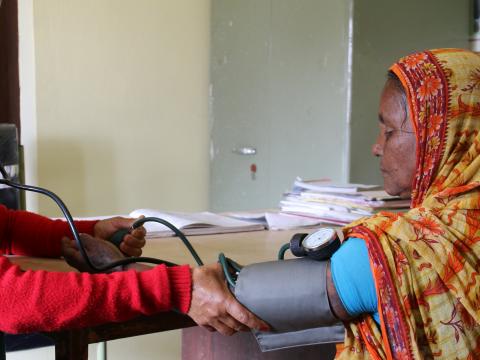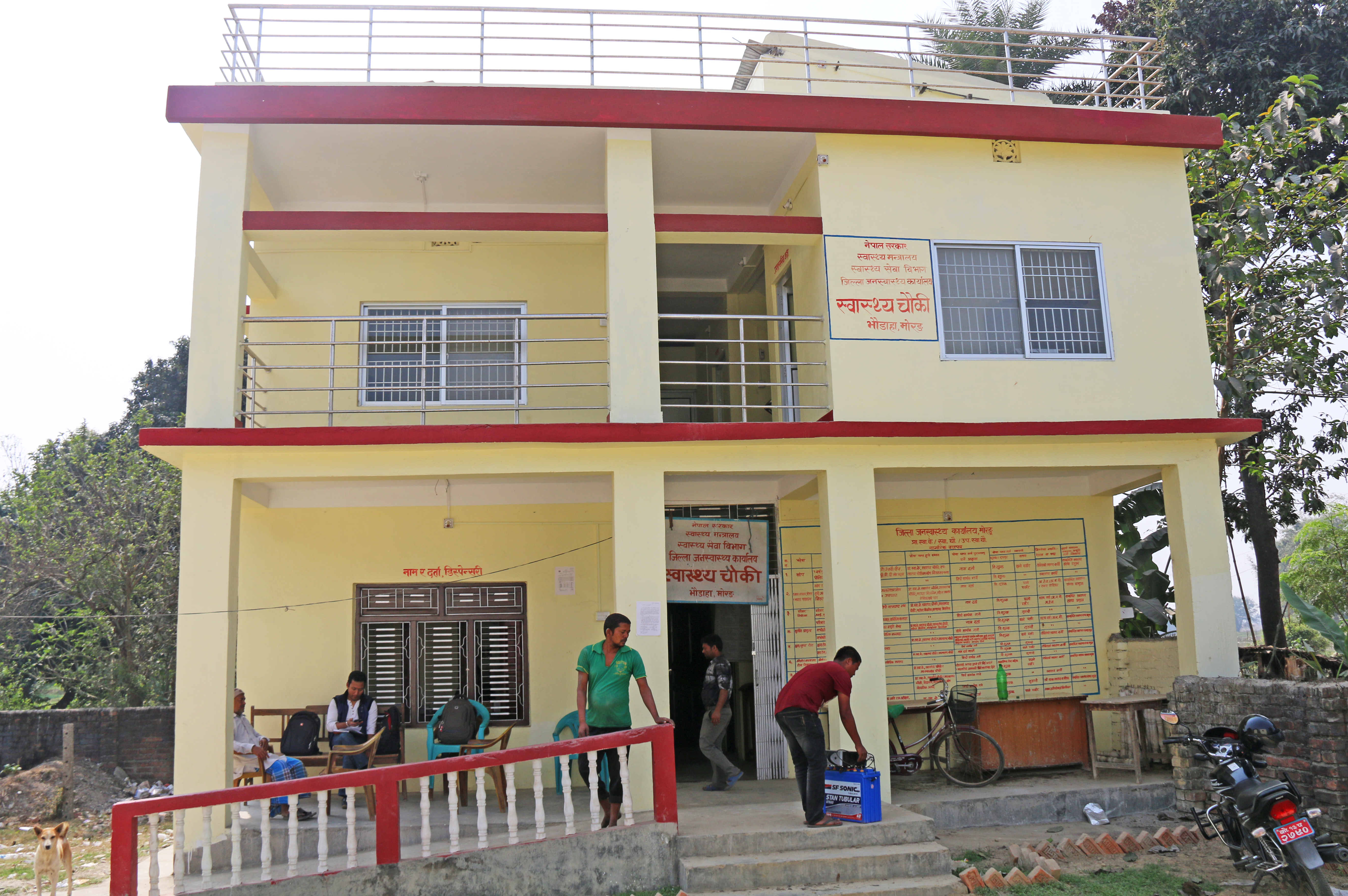Healthy people for a healthy community

The newly constructed building of Bhaudaha health post has been painted beautifully in light yellow. The warm colour evokes a sense of calm as one steps inside the premise. One can see patients coming and leaving. Some are queuing up for medical checkups and some are collecting the free medicine. Meanwhile, the staff are busy tending to the needs of the community people.
Inside the Out Patient Department of the building 48-year-old Devi Maya Niraula is checking the blood pressure of two local women. After the routine checkup Devi greets us a Namaste.
After a small chat the interview begins.
"Good health is the foundation of our life and a health post is the first institutional contact point for basic health services in rural Nepal," says Devi, a mother of two daughters. Working as an Auxiliary Nurse Midwife for 13 years at Bhaudaha health post in Morang district she has overcome many challenges at her work.
"Earlier the health post did not have its own building and we had to operate from a single room inside the Village Development Committee (VDC) building. It was very congested and uncomfortable to work there," she recalls. "Often pregnant and other women need privacy for medical treatment and we felt helpless. All we could do was use curtains for minimal privacy."
"Ever since this new two-storey building was been built with the support of World Vision, its local partner Water, Environment and Life (WEL) our work has been continuing smoothly. Now we have six spacious rooms in the new building and even the patients admire the infrastructure as well as the service," she says.
There are seven staff in this new health post which offers a range of free services such as vaccination for children under two years, pregnancy checkups, family planning, first aid and basic treatment for diarrhoea, leprosy, pneumonia, tuberculosis, etc. On an ordinary day 30-35 people visit the health post for various medical services.
Devi believes one of the central tasks in her everyday work life is informing community people about family planning methods. "Family planning helps save women’s and children’s lives, reduces the health risks of pregnancy and childbirth," she says.
The Government of Nepal commits to equitable access to voluntary family planning services based on informed choice for all individuals and couples, in particular the poor, vulnerable and marginalised groups. Family planning is one of the priority programmes of Government of Nepal, Ministry of Health. In government health system, currently, temporary family planning methods (male condoms, oral pills and injectable) are provided on a regular basis through health posts, sub health posts and public health care outreach clinics (Annual Report 2014/15, Department of Health Services).
Kuber Prasad Adhikari, National Health Coordinator for World Vision International Nepal states, "Family planning is the conscious effort to regulate the number and spacing of births through temporary, long-term and permanent methods of contraception. All couples and individuals have the right to decide freely and responsibly the number and spacing of their children and to have access to the information, education, and the means to do so."
Bhuwaneshwor Sardar (67) has been a member of the health post management committee at Bhaudaha for 15 years. He proudly says, "This health post has been receiving continuous support from World Vision for five years. Now, because of the better infrastructure and quality services even people from neighbouring communities of Thalaha and Jhorahat come here for various services including family planning."
Devi's younger daughter Sangeeta (23) is studying Bachelor of Science in Nursing in Kathmandu and Devi is happy she will also be devoting her life to the health sector. "I'm sure she will make me proud one day," she beams. "There is great joy in serving the poor and vulnerable."
